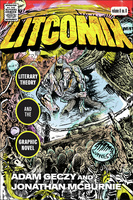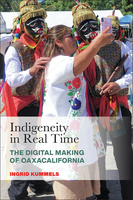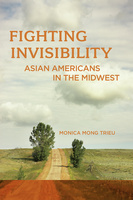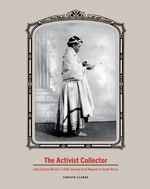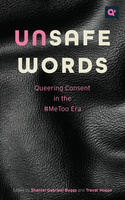Speaking Yiddish to Chickens
Holocaust Survivors on South Jersey Poultry Farms
Navigating White News
Asian American Journalists at Work
Navigating White News: Asian American Journalists at Work is the first book-length study of Asian American reporters. It documents the frustrations, challenges, desires, and hopes they face in predominantly White newsrooms. In a time of racial awakening with Black Lives Matter and COVID-19, the book offers critical insights to the workings of American newsrooms.
Litcomix
Literary Theory and the Graphic Novel
Indigeneity in Real Time
The Digital Making of Oaxacalifornia
By launching cutting-edge Internet radio stations and multimedia platforms and engaging as influencers, Zapotec and Ayuujk peoples paved their own paths to a transnational lifeway between Mexico and the United States during the Trump era. Their novel digital formats put into practice political visions concerning Indigenous communality across vast distances—in real time.
Fighting Invisibility
Asian Americans in the Midwest
Ferryman of Memories
The Films of Rithy Panh
Elena, Princesa of the Periphery
Disney’s Flexible Latina Girl
Princesa of the Periphery explores Disney’s Elena of Avalor. Focusing on girlhood and Latinidad, Leon-Boys studies the complex relationship between the U.S.’s largest ethnic minority and Disney as a global media conglomerate. The analysis demonstrates that Elena’s existence within the Disney universe is indicative of the overall presence of Latinxs in popular culture, media, and the nation.
Arranged Marriage
The Politics of Tradition, Resistance, and Change
The Activist Collector
Lida Clanton Broner’s 1938 Journey from Newark to South Africa
“After twenty-eight years of desire and determination, I have visited Africa, the land of my forefathers.” So wrote Lida Clanton Broner (1895–1982), an African American housekeeper and hairstylist from Newark, New Jersey, upon her return from an extraordinary nine-month journey to South Africa in 1938. This epic trip was motivated not only by Broner’s sense of ancestral heritage, but also a grassroots resolve to connect the socio-political concerns of African Americans with those of Black South Africans under the segregationist policies of the time. During her travels, this woman of modest means circulated among South Africa’s Black intellectual elite, including many leaders of South Africa’s freedom struggle. Her lectures at Black schools on “race consciousness and race pride” had a decidedly political bent, even as she was presented as an “American beauty specialist.”



